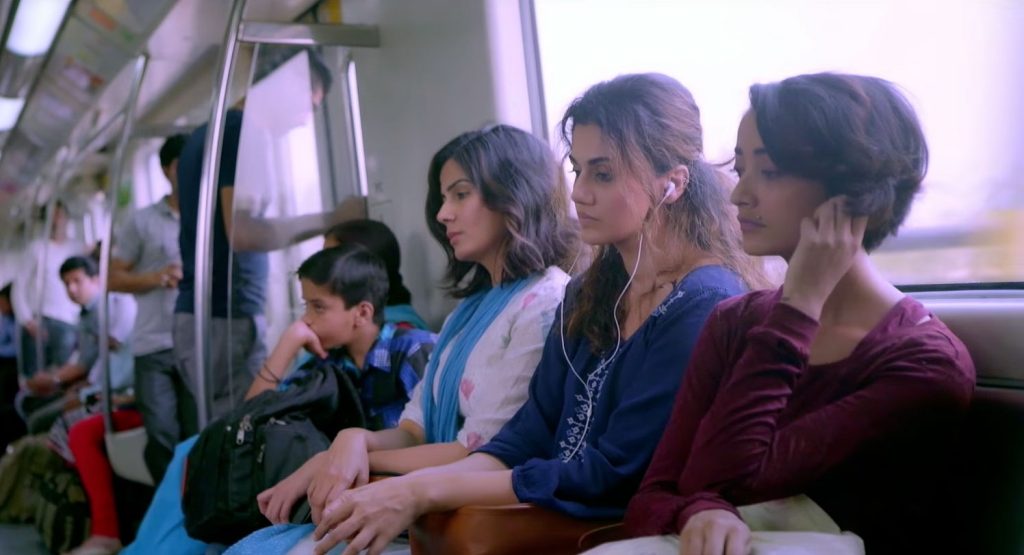Have ever conducted a sexual harassment workshop? You could not have missed the most popular expression amongst your attendees. Apart from the HR leaders who are enthusiastic about it and the founders who nod vigorously because they want a hassle free, open environment, most of your audience care very little.
It’s not because they are bad people and like to harass others in their free time. It’s mainly because they do not think these things happen often enough. Very few of us work in TERI after all. Most men are also uncomfortable with the talk of physical harassment of any sort.
So here is something that resonated with me when I watched the movie PINK. It surely wasn’t a Smita Patil-esque thought provoking cinematic excellence for the discerning few. It is mainstream and that’s why it is brilliant. (Spoiler alert) And yes, it did have a man who comes in (in the form of mighty Bachchan) and saves the damsels in terrible distress. It had a perfectly uplifting feel-good ending (who else but Dhritiman to play the sophisticated, stern yet fair and grandfatherly judge).
But PINK sure does get a few points right.
First and foremost, a no means NO. It doesn’t mean maybe. It doesn’t mean just a little. It doesn’t mean “ok brush my back a little less vigorously next time”. And it definitely doesn’t mean yes.
How mainstream the conversation has become. I do not deny that India fares miserably in sexual harassment or violence against women and children. But we have started talking about it. We are making movies like PINK which are being watched by popcorn eating family of six (dada, dadi, betu the whole ensemble). You can utter the word rape in front of Indian men without them wincing or leaving the room.
Just as they showed in the movie, these things happen all the time. And women rarely, very, very rarely, make false allegations. So next time someone says the biggest thing about these sexual harassment laws is the women who are going to misuse it, ask them statistics. Even better, know the law.
So if you are wondering what to do for your next team building exercise, take them young men for a nice and wholesome movie outing. Talking about harassment is not just a feminist thing anymore.
Maybe then they can look up from their phones and take a stand next time someone cracks a sexist joke in the workplace.
At the end of the day, workshops, policies, and posters on workplace walls will do little if conversations about consent, respect, and boundaries continue to make people uncomfortable. Culture shifts when awareness meets empathy, when people begin to understand that sexual harassment is not about “bad apples,” but about everyday behaviours that go unchecked.
The goal, then, is not just compliance, but consciousness. When a team starts recognising the quiet discomfort in the room, when someone speaks up against that “harmless” joke, when managers listen instead of dismiss, that’s when a workplace becomes safe.
Movies like PINK and conversations like these are reminders that dignity isn’t a women’s issue; it’s a workplace value. And if you’re serious about team building, start with this. Make respect part of your daily work culture, not an annual workshop.


